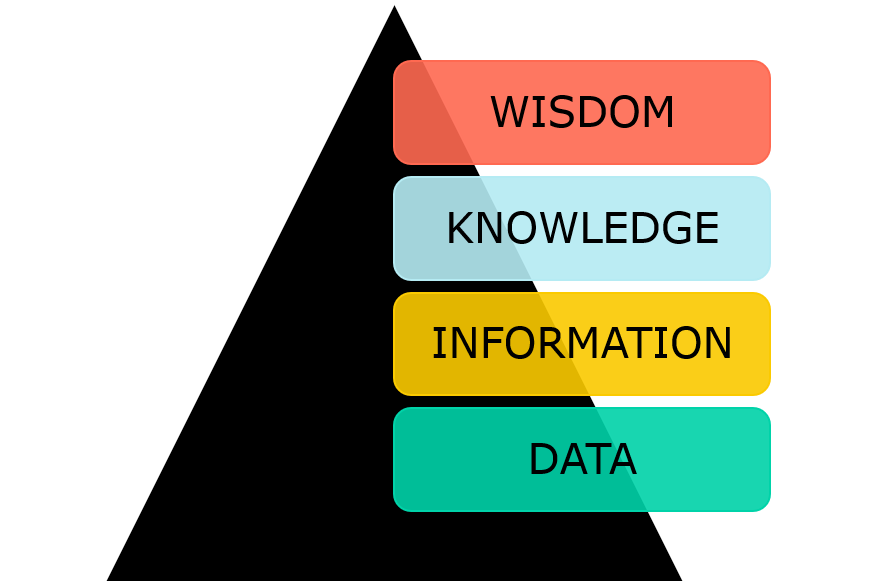If we find a blog post starting off with “we already have people driving into lakes because their Sat-Nav told them to”[i], it is good to remind ourselves on the difference of data vs information vs knowledge vs wisdom.
Understanding DIKW seems outdated given that hundreds of articles cover the topic in depth online. Yet, it is good to remind ourselves on the difference of data vs information vs knowledge vs wisdom. Here is our version.

What is data?
Data usually relates to quantities, characters or symbols that are available in raw format. Data in itself does not have meaning beyond its pure existence. However, data is often gathered and translated for a purpose, and with that the basis for further analysis. Data is with that the fundamental criterion for shaping context.
What is information?
Information is processed data. Connected, related data can provide meaning that can be useful, but it does not have to. Information therefore is data that is structured and analyzed in a meaningful format. So “if data is the atom, information is the matter”[ii]. In organizational terms, information has a purpose to help make better decisions – generally through the use of information systems that collect, process and distribute data.
What is knowledge?
Knowledge is about collecting appropriate information, understanding it, and having the capability to use it for specific purposes. It is related to understanding patterns through cognitive and analytical experience. With experience and learning as central elements to knowledge, information becomes meaningful. In other words, if data is the atom, information is the matter, then knowledge becomes the context.
What is wisdom?
Wisdom is a human state and relates to the consciousness of human programming (moral, ethical codes, etc.). It is related to our human judgment and our mental decision related to the knowledge through experience gained. It can with that relate to the right and wrong, the yes and no, the good and bad. Means it is about making wise decisions; in relation to the article introduction it means to tell yourself “to stop the engine!” Different opinions exist on whether computers will ever have the ability to possess wisdom.
How does Turbulent Flux work with DIKW? At Turbulent Flux, our software use data from existing sensors. Structured data is translated into high-fidelity information about the flow of gas, oil and water. Our software offers innovative functionality to easily input data, monitor simulations and visualize outcomes. Through our API you can integrate 3rd-party models with our foundation technology and innovate on top of our solutions, enabling you to simplify and harmonize your information systems. Our highly experienced people combine domain knowledge and software development, and our delivery teams will help and provide guidance and outputs that are relevant for your work processes. We cannot replace your wisdom, but we are there to support you throughout the process.
[i] www.technative.io
[ii] www.datarob.com/information-vs-data-vs-knowledge/